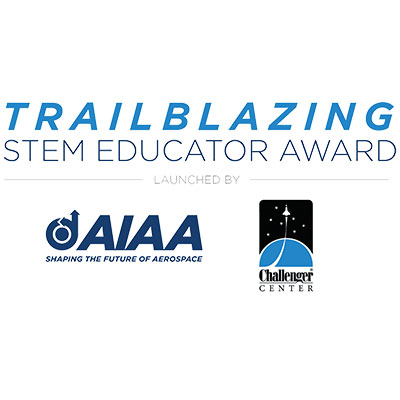The aeronautics industry is building on the advances made since the early 20th century taking us further, faster, safer, and cleaner. In the next 5–10 years, many new capabilities will be introduced, and the next generation will experience flight in ways we are just imagining. AIAA advances these opportunities for novel aircraft design, operations, and impact through its focus on the Aeronautics Domain.
Key Topics
 Advanced Air Mobility
Advanced Air MobilityAdvanced air mobility could grow into a $115 billion industry that gives all of us new transportation options. With clear operational guidelines, regulations, and standards for accommodating and incorporating autonomy, we see a thriving integrated urban and regional airspace in the next decade. The benefits of autonomy will enhance safety for everyone and enable capabilities we are only just imagining.
Learn More
 Carbon Emissions and Sustainability
Carbon Emissions and SustainabilityThe global community is focused on achieving net-zero greenhouse gas emissions from the aviation sector by 2050. The AIAA community plays an integral role in this effort that will make a substantial difference to benefit our planet.
 Certification
CertificationThe widespread use of UAVs and drones—both commercial and recreational—prompted the Federal Aviation Administration (FAA) to adapt its certification processes. Similarly, the FAA must facilitate safe use of AAM systems for passenger and cargo transport. As the FAA refreshes its certification strategy, we expect to see clear specifications, regulations, and standards emerge that will strike an appropriate balance between safety and innovation.
Space launches are close to a daily occurrence and launch sites are infringing on urban environments and large metropolitan areas. The integration of commercial air traffic, AAM, and space launch traffic must receive government attention to help drive global regulatory and certification strategies that ensure safety and continued smooth sustainable economic growth for all stakeholders.
 High-Speed Flight
High-Speed FlightHigh-speed “transportation” – both military and civilian – is fast becoming a reality. Integrating hypersonic and supersonic flight into the national and global airspace will require attention to operational efficiency, safety through certification, and environmental and societal impacts including noise and emissions. AIAA will address questions around:
- Is sustainable civil high-speed endo-atmospheric flight achievable?
- What role does the government have in promoting hypersonic and/or supersonic flight?
- What technologies are needed to develop and mature efficient and low environmental impact hypersonic and supersonic flight?
AIAA Related Content
EVENTS
This lecture is free and open to the public.

Penina Axelrad
2024 Award Recipient:
Penina Axelrad
University of Colorado Boulder
“The Evolution and Impact of Global Navigation Satellite Systems”
Global Navigation Satellite Systems (GNSS) provide the basis for smart phones to guide us unquestioningly to our destinations, safe and flexible navigation for tens of thousands of airline flights per day, seamless synchronization of power grids and timing of financial transactions, AND for scientific observation of Earth’s variable gravity field, water content of soil and vegetation on its surface, and even its atmosphere and ocean surface winds. This talk will explore what we can learn from the remarkable evolution of a military navigation system into a global utility, and consider where today’s new advances in utilization of signals-of-opportunity, optical communications, atomic clocks, and quantum sensing might lead.
About the Yvonne C. Brill Lecture in Aerospace Engineering
The Yvonne C. Brill Lecture in Aerospace Engineering was established in 2013 in memory of Yvonne Brill, pioneering rocket scientist, AIAA Honorary Fellow and NAE member. She was a trailblazer at a time when women were not encouraged to enter the science and technology fields. The Lecture emphasizes research or engineering issues for space travel and exploration, aerospace education of students and the public, and other aerospace issues such as ensuring a diverse and robust engineering community. This biennial lecture is held at the National Academy of Engineering building in Washington, DC, in October.
COURSES
-
Advanced Hydrogen Aerospace Technologies and Design – Online Short Course (Starts 8 October 2024)
8 October - 7 November 2024
This new joint course from AIAA and HYSKY Society, the latest and greatest in hydrogen aerospace technology is presented in the context of Fixed-Wing and eVTOL aircraft/vehicle design.
Open for registration. Register Now
-
Guidelines for the Development of Civil Aircraft & Systems
-
Composite Structures: Process Analysis, Progressive Damage, Failure Analysis, and Advanced Software
-
A Practical Approach to Gas Turbine Engine Performance & Design using GasTurb14
-
The Anatomy of Autonomy
-
Test Foundations for Flight Test – Online Short Course (Starts 18 Feb 2025)
18 February - 13 March 2025
This course introduces the components involved with planning, executing, analyzing, and reporting on a flight test program.
Open for registration. Register Now
-
Design Evolution of Aircraft Structures
-
Guidance and Control of Hypersonic Vehicles
NEWS
-
 Challenger Center and AIAA Open Nominations for 2025 Trailblazing STEM Educator Award
Challenger Center and AIAA Open Nominations for 2025 Trailblazing STEM Educator Award
24 September 2024
Challenger Center and the American Institute of Aeronautics and Astronautics (AIAA) announced they are accepting nominations for the 2025 Trailblazing Science, Technology, Engineering, and Math (STEM) Educator Award. The annual award celebrates K-12... -
 AIAA Announces its Class of 2025 Associate Fellows
AIAA Announces its Class of 2025 Associate Fellows
23 September 2024
AIAA is pleased to announce its newly elected Class of 2025 Associate Fellows. AIAA will formally honor and induct the class at the AIAA Associate Fellows Induction Ceremony and Dinner, Wednesday, 8 January 2025, at the Hyatt Regency Orlando... -
 AIAA and HYSKY Society Announce New Advanced Hydrogen Aviation Short Course
AIAA and HYSKY Society Announce New Advanced Hydrogen Aviation Short Course
19 September 2024
AIAA is pleased to announce a new continuing education course on hydrogen aviation developed in collaboration with HYSKY Society, an association committed to decarbonizing aviation with hydrogen. -
 AIAA Statement on SpaceX Polaris Dawn Mission
AIAA Statement on SpaceX Polaris Dawn Mission
13 September 2024
AIAA CEO Dan Dumbacher made the following statement: “On behalf of the 30,000 professional and student members of AIAA, we congratulate the SpaceX team and the Polaris Dawn crew on their accomplishments. -
 AIAA Announces 2024 Undergraduate Scholarship and Graduate Award Winners
AIAA Announces 2024 Undergraduate Scholarship and Graduate Award Winners
5 September 2024
The AIAA Foundation has announced the 26 winners of its 2024 undergraduate scholarships and graduate awards. -
 AIAA Names Clay Mowry as Chief Executive Officer
AIAA Names Clay Mowry as Chief Executive Officer
3 September 2024
AIAA announced today that its Board of Trustees has selected Clay Mowry as the Institute’s new chief executive officer (CEO). Mowry is a globally recognized space industry executive with experience across the international aerospace community. He will join the Institute effective 1 October 2024. -
 AIAA Statement on Blue Origin’s Successful NS-26 Mission
AIAA Statement on Blue Origin’s Successful NS-26 Mission
29 August 2024
AIAA CEO Dan Dumbacher made the following statement: “On behalf of the 30,000 professional and student members of AIAA, we congratulate Blue Origin on its successful NS-26 mission. -
 Dan Dumbacher Recognized with Allyship Award
Dan Dumbacher Recognized with Allyship Award
21 August 2024
AIAA CEO Dan Dumbacher is being recognized by Women in Aerospace with their 2024 Allyship Award. This honor is presented to an individual ‘who actively promotes and aspires to advance a culture...


